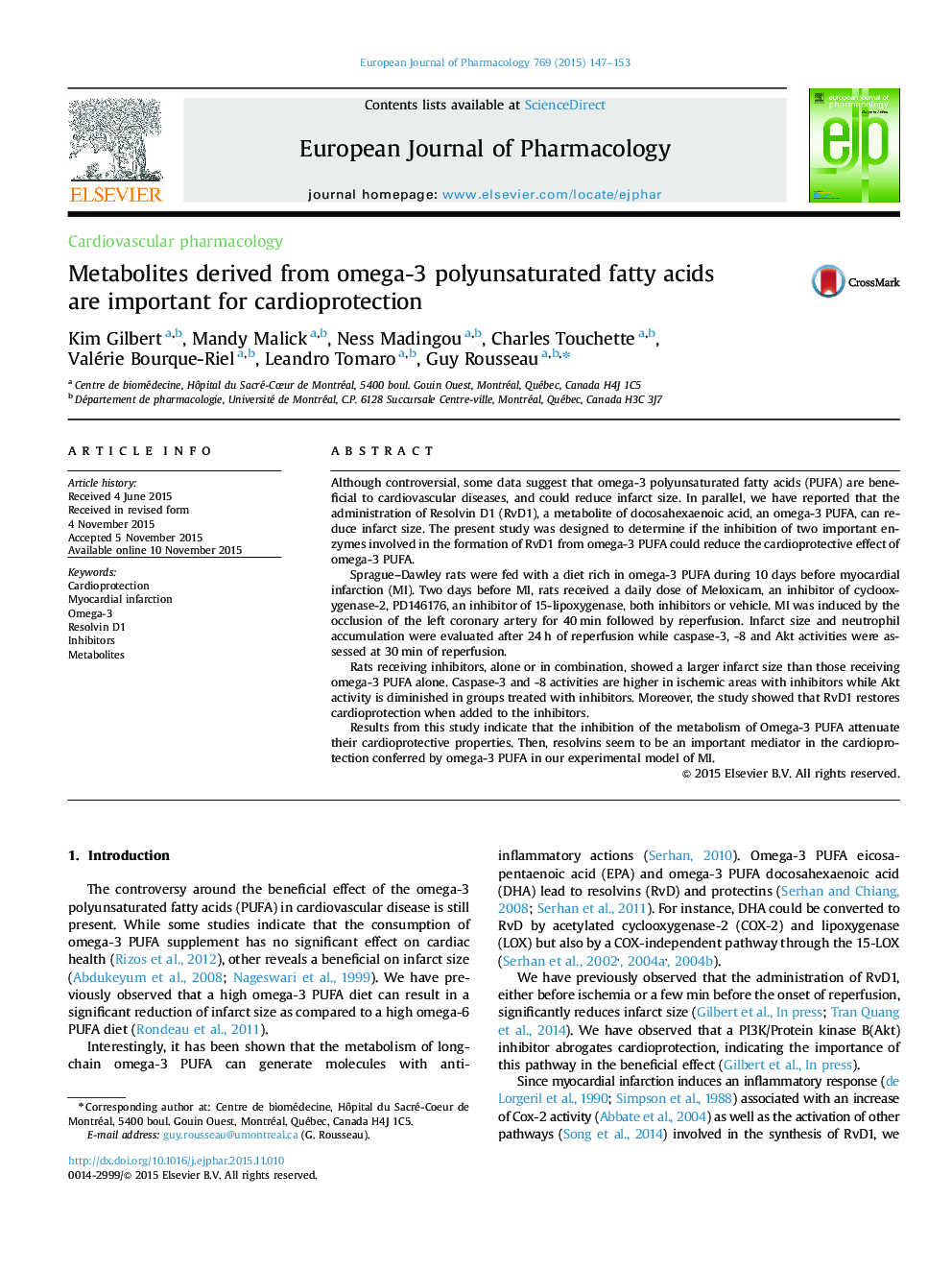| Article ID | Journal | Published Year | Pages | File Type |
|---|---|---|---|---|
| 2531291 | European Journal of Pharmacology | 2015 | 7 Pages |
Although controversial, some data suggest that omega-3 polyunsaturated fatty acids (PUFA) are beneficial to cardiovascular diseases, and could reduce infarct size. In parallel, we have reported that the administration of Resolvin D1 (RvD1), a metabolite of docosahexaenoic acid, an omega-3 PUFA, can reduce infarct size. The present study was designed to determine if the inhibition of two important enzymes involved in the formation of RvD1 from omega-3 PUFA could reduce the cardioprotective effect of omega-3 PUFA.Sprague–Dawley rats were fed with a diet rich in omega-3 PUFA during 10 days before myocardial infarction (MI). Two days before MI, rats received a daily dose of Meloxicam, an inhibitor of cyclooxygenase-2, PD146176, an inhibitor of 15-lipoxygenase, both inhibitors or vehicle. MI was induced by the occlusion of the left coronary artery for 40 min followed by reperfusion. Infarct size and neutrophil accumulation were evaluated after 24 h of reperfusion while caspase-3, -8 and Akt activities were assessed at 30 min of reperfusion.Rats receiving inhibitors, alone or in combination, showed a larger infarct size than those receiving omega-3 PUFA alone. Caspase-3 and -8 activities are higher in ischemic areas with inhibitors while Akt activity is diminished in groups treated with inhibitors. Moreover, the study showed that RvD1 restores cardioprotection when added to the inhibitors.Results from this study indicate that the inhibition of the metabolism of Omega-3 PUFA attenuate their cardioprotective properties. Then, resolvins seem to be an important mediator in the cardioprotection conferred by omega-3 PUFA in our experimental model of MI.
